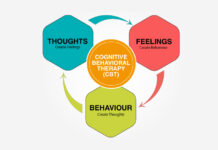We often face a range of challenging emotions that can impact our physical and emotional health. These emotions can lead to stress, anxiety, depression, and a host of other issues that can negatively impact our weight gain, sexual life and the people around us.
When we experience difficult emotions, such as stress, anxiety, or depression, our body’s stress response is triggered. This response, also known as the “fight or flight” response, is designed to help us survive in dangerous situations. However, when it’s triggered frequently or for extended periods, it can have negative effects on our health.
One of the ways in which the stress response can impact our health is through weight gain. When we’re stressed, our body releases cortisol, a hormone that can increase our appetite and cause us to crave high-fat, high-sugar foods. It is a well-known fact that stress can lead to emotional eating, where we use food as a way to manage difficult emotions. It goes without saying that it can lead to weight gain, particularly in the abdominal area, which is associated with an increased risk of health problems such as diabetes and heart disease.
The Connection Between Difficult Emotions and Sexual Life
In addition to weight gain, difficult emotions can also impact our sexual life. When we’re experiencing stress, anxiety, or depression, our libido can decrease. This is because the stress response can cause our body to prioritize survival over reproduction. Additionally, difficult emotions can lead to a decreased sense of self-esteem, which can impact our confidence in the bedroom.
Five Tips for Coping with Difficult Emotions
Practice Self-Care: One of the most important things you can do to cope with difficult emotions is to practice self-care. This includes very basic elements that we seem to forget the importance of, getting enough sleep, eating a healthy diet, exercising regularly, and taking time for yourself to do things you enjoy.
Practice Mindfulness: Mindfulness is a practice that involves being present in the moment and focusing on your thoughts and feelings without judgment. It can help you become more aware of your emotions and learn to cope with them in a healthy way.
Seek Support: It’s important to have a support system in place when you’re coping with difficult emotions. This can include friends, family, or a therapist who can provide you with emotional support and guidance.
Find Healthy Ways to Cope: Instead of turning to food or other unhealthy coping mechanisms, find healthy ways to cope like meditation, yoga, or journaling. Writing is so powerful!
Prioritize Your Sexual Health: If you’re experiencing a decreased libido or other sexual health issues due to difficult emotions, it is time to urgently react, as it will negatively impact your relationship with your partner. This could mean seeking support from a therapist, trying new sexual activities with your partner, or exploring self-pleasure as a way to connect with your body and increase sexual confidence.
Emotional issues affect you and the people around you. Be proactive to take steps towards improving your overall well-being and quality of life.













